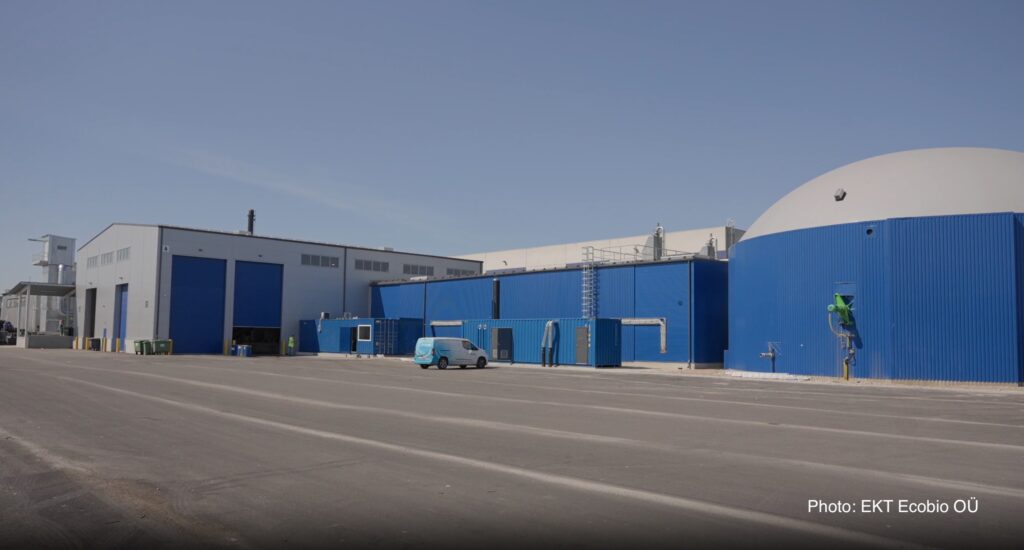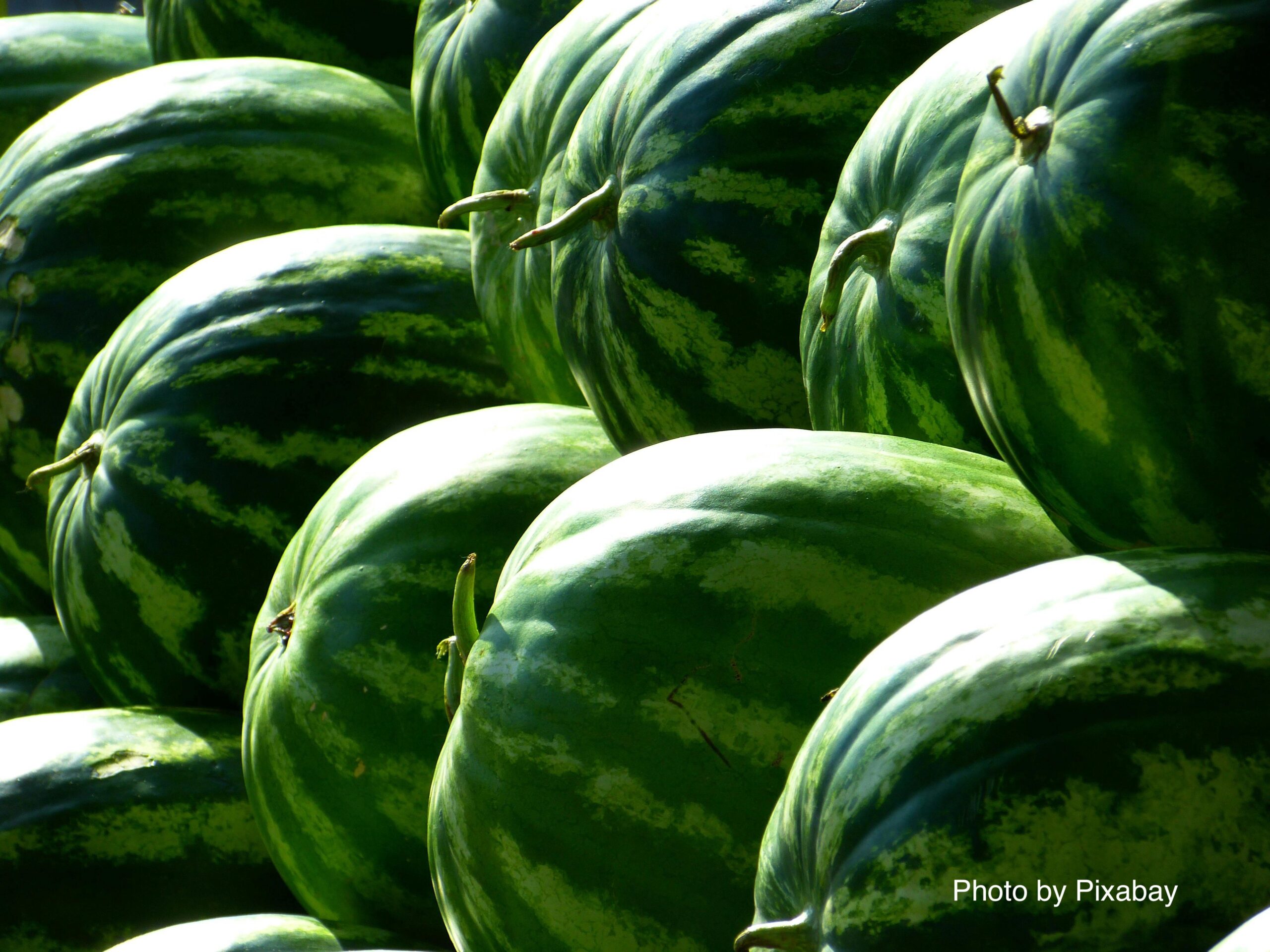Case Tallinn | Biogas From Food Waste
Author: Teele Joost, City of Tallinn
Food waste is 100% recyclable material when sorted separately. However, until some time ago, there was not sufficient reason in Estonia, including Tallinn, to separate kitchen and cafeteria waste, as the majority of it was incinerated or landfilled. At the same time, Tallinn’s waste management plan outlined goals for reducing the volume of mixed municipal waste and increasing the proportion of recycled waste.
The solution was seen in producing biogas from household kitchen waste and bio-waste generated in catering establishments. In 2019, the Ecobio biogas plant started operating near Tallinn. The plant was established with the aim of making waste management more sustainable and producing renewable energy from organic waste. The launch of the biogas plant contributes to making Estonia’s waste and energy sectors more sustainable and reduces the need for waste landfilling. Initially, the plant operated at a low capacity, partly because residents were not accustomed to sorting organic waste. There was an immediate demand for the produced biogas, as in 2018 Tallinn purchased its first gas buses. Gas buses are part of Tallinn’s efforts to move towards cleaner and more environmentally friendly transportation.
Why Is This a Good Solution for Achieving the Goal
- Using biogas as a transportation fuel helps reduce methane emissions that would otherwise occur from the decomposition of bio-waste in landfills. Not only does this decrease greenhouse gas emissions, but it also promotes waste recycling.
- Burning biogas as fuel for city buses emits fewer polluting exhaust gases compared to traditional fossil fuels such as diesel or gasoline. This helps reduce air pollution and improve air quality in cities.
- Producing and using biogas for local transportation creates an opportunity for energy autonomy. Independence from fossil fuels reduces dependence on external energy sources and ensures a more stable and less affected transportation system.
- Producing biogas from separately collected bio-waste increases the amount of recycled waste, as it allows for the utilization of organic waste that would otherwise be directed to landfills or composted.
- The benefits of separately collecting bio-waste are visible and tangible to city residents. The more bio-waste is collected separately, the more biogas can be produced. The more biogas there is, the more city buses can run on environmentally friendly fuel. In Tallinn, public transportation is free for city residents, which could further motivate cities to contribute to biogas production, if these two themes were to be interconnecte.
How Does the EKT Ecobio Maardu Biogas Plant Operate?
In the plant, bio-waste moves through a closed system, with temperatures in the fermentation units ranging between 37-40 degrees Celsius. During the process, bacteria break down the biomass into small particles, and in the subsequent production process, bacteria generate biogas containing an average of 50-60 percent methane. This raw gas is purified to produce biomethane, which is in terms of its properties and calorific value equivalent to natural gas. Kitchen and cafeteria waste, as well as green landscaping waste, can be fermented into biomethane at the plant. When the plant operates at full capacity, it can produce approximately 2 million cubic meters of biomethane per year – a significant amount, considering that with the production of 1 hour at the Maardu plant, a city bus can travel 450 kilometers.

Picture: Ecobio bio-gas factory in Tallinn
From 10 kilograms of kitchen waste, it is possible to produce one cubic meter of biomethane, equivalent to one liter of gasoline. The biogas plant can process approximately 20,000 tons of biodegradable waste per year. Since the separate collection of bio-waste is not yet a firmly established habit among people, bio-waste is initially brought to the plant from all over Estonia. If the separate collection of bio-waste becomes a habit for a larger number of people, several similar plants specializing in household bio-waste will need to be established in Estonia.
A byproduct of biomethane production is fertilizer. Approximately 15,000 tons of certified organic liquid fertilizer can replace 360 tons of pure mineral nitrogen fertilizer. The plant has the capability to purify input materials from contaminants (from the population, commerce, etc.). In addition to the fermentation process, the waste is also heated to 70 degrees Celsius for hygienization. The liquid fertilizer is also purified before being used in agriculture. The fermentation process generates approximately 17,500 tons of digestate annually, which, after certification, will be used for fertilizing fields in Northern Estonia.
EKT Ecobio OÜ is a subsidiary of AS Eesti Keskkonnateenused, which operates the new biogas plant in Maardu. The total investment for establishing the EKT Ecobio plant was 14 million euros, with the project being supported by the Environmental Investment Centre with 3.9 million euros from the European Regional Development Fund.
How Has the Production and Use of Biogas as a Fuel Progressed
The EKT Ecobio biogas plant located in Maardu produced a total of 600,000 m3 of biomethane in 2023, using nearly 10,000 tons of bio-waste collected from households. The entire production was utilized as transportation gas in Tallinn City Transport gas buses, which traveled 2.24 million kilometers with it.
Last year, 46% of the gas buses’ fuel demand was covered by biomethane, reaching nearly 68% in November. As the separate collection of household kitchen waste and bio-waste generated in catering establishments gradually increases in Tallinn and throughout Estonia, it is reasonable to expect that by 2025, domestic biomethane production will reach a level capable of fully meeting the needs of Tallinn’s city gas buses. Since the separate collection of bio-waste has been mandatory for everyone in Estonia since 2024, this fact, in turn, contributes to the growth of the biogas plant’s production capacity.

